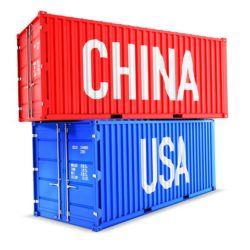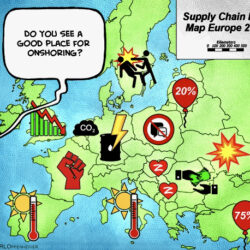Transport sector still struggling with resilience

Transport companies face significant challenges in the coming years. According to industry leaders, resilience is therefore a strategic requirement for their organizations. But they are not putting their money where their mouth is; for over 40% of organizations, implementing resilience structurally is a challenge. Moreover, more than half of the organizations also underestimate its importance; according to 56%, the worst crisis is already over. This shows a new research report by PA Consulting: ‘The always-on advantage’.
In the coming years, the pressure for cost-effective sustainability (36%) will increase, while continuing economic uncertainty (35%) will not help. Other challenges include improving connectivity and interoperability of transport systems (33%), the operational impact of climate change and extreme weather (32%), as well as growing concerns about digital and physical security (31%). However, competing interests make it difficult to build the necessary resilience to meet these challenges.
Far-reaching transformation
While 88% of organizations recognize that resilience is structurally necessary to meet these challenges, 42% find it challenging (and as many as 69% in aviation). This is partly because the right mindset is not yet in place that sees resilience as a natural part of all business activities. Only 31% of respondents do see resilience that way. Other obstacles include dated or too rigid technology and processes (33%), inflexible infrastructure (36%), lack of real-time data and insight (33%), and slow governance (32%).
Perhaps the biggest challenge, according to PA Consulting, is that resilience is increasingly dependent on the wider transport ecosystem. 78% of respondents agree. However, 30% of them note a lack of collaboration within the ecosystem and 39% rate support for resilience through collaboration and the ecosystem as ‘adequate’, ‘limited’ or even outright ‘poor’.
Requirements for resilience
In the report, PA Consulting concludes that organizations need three things to achieve the required resilience. The first is a resilient mindset. Indeed, resilience during a crisis is largely determined by the reaction of employees at all levels. In addition, training – through scenario planning and war-gaming – is also important, says PA. Continuous practice and optimization is needed to make and keep all operational processes resilient. Lastly, a resilient ecosystem is indispensable. The transport ecosystem must work together to become resilient, due to the interconnectedness and multimodal nature of the industry.
“Collaboration within ecosystems and supply chains is crucial to making and keeping the transport industry resilient globally,” says transport expert Martijn Wagner of PA Consulting. “Stronger partnerships where costs and benefits are shared can help companies to weather crises. This explicitly trades short-term turnover for long-term stability. This is the best way to achieve sustainable growth of the entire transport ecosystem and prevent recurring crises from constantly throwing the sector off course,” Wagner adds.










